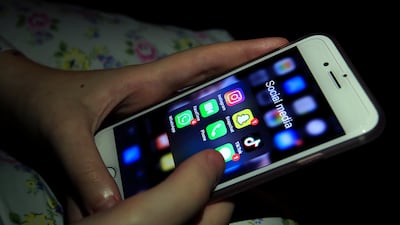Belief in conspiracy theories about terrorist attacks such as the Manchester Arena bombing, and school shootings in the US are higher among younger people, and those who get much of their news from social media, research shows.
The study by the Policy Institute at King’s College London for BBC Panorama and BBC Radio 4 podcasts gathered information from 4,459 UK adults in October.
When it comes to different types of conspiracy theories relating to terrorist attacks in the UK, there is a hardcore minority who are particularly strong believers.
The study says that 9 per cent of people can be classed as strongly accepting most or all 11 conspiracies, while another one in five (21 per cent) weakly accept at least some of them and 6 per cent say they are not sure what to think about them.
But the biggest group, making up half of the population, strongly reject most or all of the statements, and one in eight (13 per cent) reject them more weakly, thinking some types of claims are false but having less certainty about others.
The study found that by far the most people — four in five — believe serious terrorist attacks have taken place in the UK in recent years and a third say they do not think the official story has told us the whole truth.
One in five goes as far as saying they think the victims of terrorist attacks in the UK are not being truthful about what happened to them.
A quarter of the public say it is definitely or probably true that the mainstream media and government officials are involved in a conspiracy to cover up important information about the attack at Manchester Arena.
Similarly, 29 per cent think the real truth about the attacks on the London transit system on July 7, 2005, is being kept from the public.
It is not only attacks in the UK that are questioned. A quarter of the British public say it is definitely or probably true that people in the US government either assisted in the 9/11 attacks or took no action to stop them, because they wanted the US to go to war in the Middle East.
One in four people aged 18 to 34 say it is true that the 7/7 attacks were probably a hoax — about double the proportion who say this among the overall population (13 per cent).
Fourteen per cent of the population overall say it is definitely or probably true that the Manchester attack involved “crisis actors” who pretended to be injured.
But this rises to 44 per cent among those who say they know a great deal or fair amount about news and events from the messaging app Telegram.
Those who get much of their information from other social networks, such as TikTok (32 per cent), Instagram (29 per cent), Twitter (28 per cent) and WhatsApp (28 per cent), are also more likely than the overall public to say they believe this conspiracy theory.
That is in contrast to those who rely more on traditional news sources, such as newspapers and magazines (16 per cent) and major TV and radio broadcasts (13 per cent).
There are also differences in belief by gender and level of engagement with the political process.
Men (17 per cent) are twice as likely as women (8 per cent) to say the Manchester Arena attack was probably a hoax, and more likely to think victims of UK terrorism attacks are not telling the truth about their experience (23 per cent for men, 15 per cent for women).
Meanwhile, 24 per cent of those who say they did not cast a vote in the 2019 general election think the Manchester and 7/7 attacks were not carried out by terrorists, compared with 16 per cent of the public overall.
The study also found there is distrust about the role of the UK government in terror attacks, and this may have worsened because of the Covid-19 pandemic.
About a third (31 per cent) believe the UK government has been involved in covering up terrorist attacks in the country, and 22 per cent think it has deliberately allowed such attacks to happen to further its political agenda.
Another one in five (18 per cent) think the UK government has been involved in orchestrating terror attacks on UK soil.
One in three (34 per cent) people agree that the experience of the Covid-19 pandemic has made them much more suspicious of official explanations of events, including terrorist attacks.
And they are more likely to feel this way if they already see it as an important part of their identity to question what they are told rather than just believe explanations from the government or mainstream media (44 per cent).
“Overall, around one in 11 of the UK population fall into a group who can be classed as strongly believing such conspiracies," said Prof Bobby Duffy, director of the Policy Institute at King’s College London.
"This type of extreme belief is at the end of a much wider funnel of suspicion and distrust, where around four in 10 think there are so many conflicting accounts it’s hard to know what to believe, and around three in 10 do not believe the whole truth is being told about these incidents.
“There are clear characteristics of those who tip from this suspicion into conspiracism, with younger people, those who get a lot of their information from social media and messaging platforms, and those who are disengaged from mainstream politics being most likely to believe conspiracies.
"Of course, this doesn’t mean that social media use causes these beliefs, rather than attracting those already susceptible, or that it is an easy task to crack down on the sharing or fuelling of conspiracies.
"But it is a key and growing challenge that governments and platforms need to engage with.”


